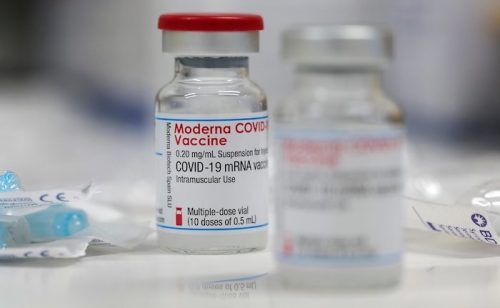Note: Bishop Kettler sent this letter to priests March 9.
Dear pastor,
The development of vaccines to combat the COVID-19 pandemic has garnered much attention in recent months. Moral concerns have been raised regarding the creation and testing process for some of the vaccines because they use cell lines cultured from fetal cells that were originally obtained decades ago from two abortions.

As bishop of this diocese, I want you to know my views on these issues so that you are better able to make decisions and answer questions you may receive from parishioners. My views are consistent with the guidance provided over the last few months by the Vatican’s Congregation for the Doctrine of the Faith and the Pontifical Academy for Life, the U.S. Conference of Catholic Bishops, the National Catholic Bioethics Center, Catholic Medical Association, and the summary of this teaching compiled by our own diocesan healthcare ethics consultant, Fr. Tom Knoblach.
It is morally permissible to receive any of the three vaccines — Pfizer, Moderna or Johnson & Johnson — currently being shipped around the country. Reception is permissible because of the serious health threat still posed by the pandemic, the lack of alternative vaccines available at this time, and the Church’s teaching about how to approach moral concerns surrounding this issue.
The permissibility of using the Pfizer and Moderna vaccines was addressed in two documents that I sent to you in mid-December: Fr. Knoblach’s column on the issue that was subsequently published in the January edition of The Central Minnesota Catholic, and a joint statement from the USCCB Committees on Doctrine and Pro-Life Activities. Additionally, a joint statement released earlier this month from the same two USCCB committees addresses the Johnson and Johnson vaccine and echoes the consistent message the Church has offered on the subject of COVID vaccines.
I want to draw your attention to a key passage in the March 2nd statement from Bishop Kevin Rhoades, chairman of the Committee on Doctrine, and Archbishop Joseph Naumann, chairman of the Committee on Pro-Life Activities:
“Pfizer and Moderna’s vaccines raised concerns because an abortion-derived cell line was used for testing them, but not in their production. The Johnson & Johnson vaccine, however, was developed, tested and is produced with abortion-derived cell lines raising additional moral concerns. The Congregation for the Doctrine of the Faith has judged that ‘when ethically irreproachable Covid-19 vaccines are not available … it is morally acceptable to receive Covid-19 vaccines that have used cell lines from aborted fetuses in their research and production process.’ However, if one can choose among equally safe and effective COVID-19 vaccines, the vaccine with the least connection to abortion-derived cell lines should be chosen. Therefore, if one has the ability to choose a vaccine, Pfizer or Moderna’s vaccines should be chosen over Johnson & Johnson’s.”
The reality, especially in these early months of the vaccine rollout, is that people will likely not have a choice with regard to the vaccine they receive. Therefore, they need to know that they can, in good conscience, accept the one offered to them. As the USCCB guidance notes, if there is in fact a choice, the Pfizer and Moderna vaccines have greater moral distance from any relation to cell lines derived from abortion and are preferable.
Receiving the vaccine when no alternatives are available does not condone the evil of abortion or promote more abortions. Abortions are not being done to develop or produce these vaccines. Further, it is important to emphasize that there is no fetal tissue in any of these vaccines. Fetal cell lines, which are self-replicating, are many thousands of cellular generations removed from the original tissues and contain no fetal tissue. That said, I join the consistent voice of the Church in calling for the development of vaccine alternatives that use cell lines free of any moral concerns, and I encourage you and your parishioners to urge pharmaceutical companies and researchers to pursue these alternatives.
The teaching around the limits of moral cooperation can be complex to understand and difficult to apply. Please assure your people that this support for vaccination is rooted in consistent Catholic teaching and is not a compromise of the Church’s defense of innocent life or a statement of partisan politics. Every person must make an informed, prudential decision about whether or not to receive a COVID-19 vaccination. However, given the serious medical threat and social disruption posed by COVID-19, I encourage all people, as they become eligible, to be vaccinated as a way to protect their health and, as Fr. Knoblach said in his column, as “an act of solidarity and charity and arguably a work of mercy” that aids in protecting others.
Sincerely yours in Christ,
+Donald J. Kettler
Bishop of Saint Cloud
Photo: A vial of the Moderna COVID-19. (CNS photo/Kai Pfaffenbach, Reuters)























With a survival rate of well over 98%, the most morally acceptable alternative should be no vaccine at all. I am sure there are many Catholics that are relieved that the Church will allow the faithful to take a vaccine without the consequence of incurring mortal sin. However, for me and my family, we feel Catholics should expect and demand a higher standard.